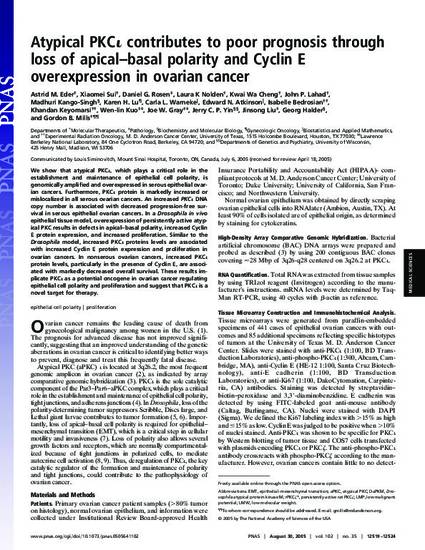
We show that atypical PKCι, which plays a critical role in the establishment and maintenance of epithelial cell polarity, is genomically amplified and overexpressed in serous epithelial ovarian cancers. Furthermore, PKCι protein is markedly increased or mislocalized in all serous ovarian cancers. An increased PKCι DNA copy number is associated with decreased progression-free survival in serous epithelial ovarian cancers. In a Drosophila in vivo epithelial tissue model, overexpression of persistently active atypical PKC results in defects in apical-basal polarity, increased Cyclin E protein expression, and increased proliferation. Similar to the Drosophila model, increased PKCι proteins levels are associated with increased Cyclin E protein expression and proliferation in ovarian cancers. In nonserous ovarian cancers, increased PKCι protein levels, particularly in the presence of Cyclin E, are associated with markedly decreased overall survival. These results implicate PKCι as a potential oncogene in ovarian cancer regulating epithelial cell polarity and proliferation and suggest that PKCι is a novel target for therapy.
Available at: http://works.bepress.com/madhuri_kango-singh/27/

This document has been made available for download in accordance with the publisher's policy on self-archiving. It is freely available online through the PNAS open access option.
Permission documentation on file.